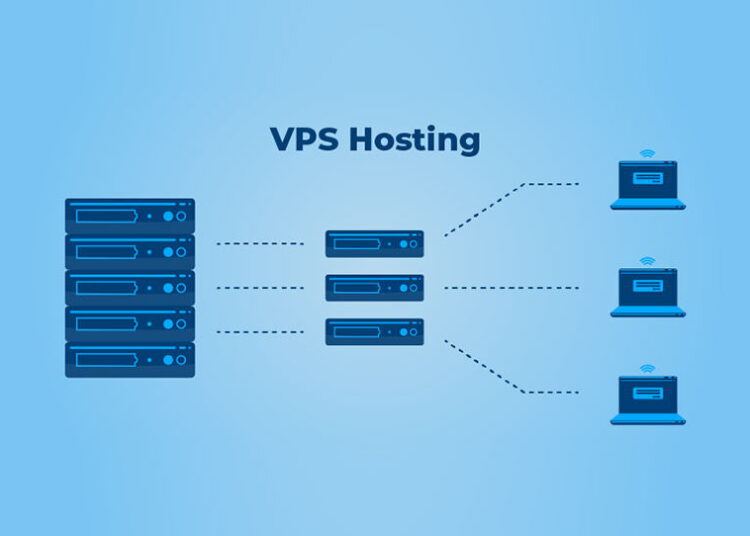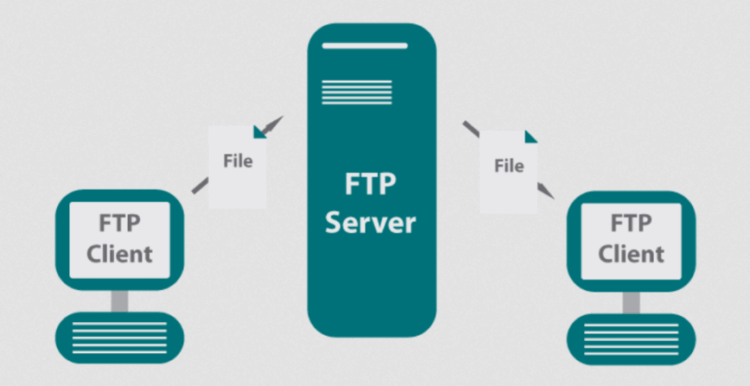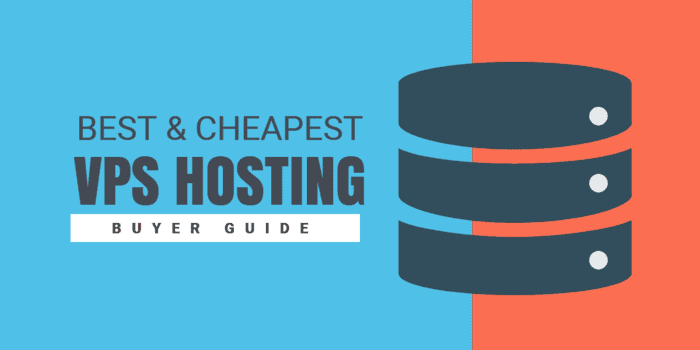Exploring the world of VPS opens up a realm of possibilities for individuals and businesses alike. From understanding the basics to delving into the intricacies of different types and factors to consider, this guide on the best VPS promises to be a comprehensive resource for all your hosting needs.
As we navigate through the realms of virtual private servers, we uncover the key elements that make them essential in today's digital landscape.
What is VPS?
Virtual Private Server (VPS) is a type of hosting service that uses virtualization technology to create isolated virtual environments on a physical server. Each VPS operates independently, with its own resources and operating system, providing a level of control and customization similar to a dedicated server.VPS works by dividing a physical server into multiple virtual servers, each with its own set of resources such as CPU, RAM, and storage. This allows users to have more control over their hosting environment compared to shared hosting, without the cost of a dedicated server.Examples of VPS usage scenarios
- Web hosting: VPS is commonly used to host websites and web applications that require more resources and control than shared hosting can provide.
- Development and testing: Developers often use VPS to create isolated environments for testing new software or applications before deploying them to production servers.
- Virtual desktop: VPS can be used to host virtual desktops, allowing users to access their desktop environment remotely from any device.
- Backup and storage: VPS can also be used for data backup and storage, providing a secure and scalable solution for storing important files and information.
Types of VPS
When it comes to Virtual Private Servers (VPS), there are different types available to cater to varying needs and preferences.Managed VPS
- Managed VPS is a type of VPS where the hosting provider takes care of server maintenance tasks such as updates, security patches, and backups.
- This type of VPS is suitable for users who prefer to focus on their websites or applications without worrying about server management.
Unmanaged VPS
- Unmanaged VPS gives users full control over the server, allowing them to customize and manage all aspects of the server themselves.
- This type of VPS is ideal for users with technical knowledge and experience in server administration.
Cloud VPS
- Cloud VPS is a virtual server that runs in a cloud computing environment, providing scalability and flexibility to handle fluctuating workloads.
- Users pay for the resources they consume, making it a cost-effective option for businesses with varying resource needs.
Windows VPS
- Windows VPS is a virtual server that runs on a Windows operating system, offering compatibility with Windows-based applications and software.
- It is a popular choice for users who require specific Windows applications or services for their websites or projects.
Linux VPS
- Linux VPS is a virtual server that runs on a Linux-based operating system, known for its stability, security, and open-source nature.
- It is preferred by users who work with open-source software or require a customizable and secure hosting environment.
Shared Hosting vs. VPS
- Shared hosting involves multiple websites sharing resources on a single server, leading to potential performance issues and security risks.
- VPS, on the other hand, provides dedicated resources and isolation for each user, offering better performance, security, and scalability.
Benefits of Dedicated VPS
- Dedicated VPS ensures that users have full control over their server environment, allowing them to customize and optimize it according to their specific requirements.
- It offers enhanced security measures, as users do not have to worry about potential security vulnerabilities from other websites sharing the same server.
- Dedicated VPS provides better performance and reliability, as users have dedicated resources allocated to their server, ensuring consistent uptime and speed for their websites or applications.
Factors to consider when choosing the best VPS
When selecting the best VPS for your needs, there are several key factors to consider that can greatly impact the performance and reliability of your server. Factors such as performance, reliability, scalability, security, server location, and available resources like CPU, RAM, and storage play a crucial role in determining the suitability of a VPS for your specific requirements.Performance, Reliability, and Scalability
- Performance: Look for a VPS provider that offers high-performance servers with fast processing speeds and low latency to ensure smooth operation of your applications and websites.
- Reliability: Choose a VPS provider with a proven track record of uptime and reliability to minimize downtime and ensure continuous availability of your services.
- Scalability: Opt for a VPS plan that allows you to easily scale up or down based on your changing needs, ensuring that your server can accommodate growth without any hassle.
Security and Server Location
- Security: Prioritize VPS providers that offer robust security measures such as firewalls, DDoS protection, and regular backups to safeguard your data and protect your server from potential threats.
- Server Location: Consider the physical location of the VPS servers as it can impact the speed and performance of your applications. Choosing a server location closer to your target audience can help reduce latency and improve user experience.
Impact of CPU, RAM, and Storage
- CPU: Select a VPS plan with a powerful CPU that can handle the computational load of your applications efficiently, ensuring optimal performance.
- RAM: Ensure that your VPS has an adequate amount of RAM to support multitasking and handle concurrent user requests without slowing down.
- Storage: Consider the type of storage (SSD or HDD) offered by the VPS provider and choose a plan that provides sufficient storage space to accommodate your data and applications.
Popular VPS providers
When it comes to VPS providers, there are several top players in the market that offer a range of features and pricing options. Let's take a closer look at some of the most popular VPS providers and compare their offerings.1. Amazon Web Services (AWS)
- Features: AWS offers a wide range of services, including scalable virtual servers, storage options, and networking capabilities.
- Pricing: Pricing is based on a pay-as-you-go model, with various pricing tiers depending on the resources you need.
- Customer Reviews: AWS is known for its reliability and performance, with many customers praising its scalability and flexibility.
2. DigitalOcean
- Features: DigitalOcean provides a user-friendly interface, SSD storage, and a variety of pre-configured one-click apps.
- Pricing: DigitalOcean offers transparent pricing with hourly or monthly billing options, making it easy to manage costs.
- Customer Reviews: Customers appreciate DigitalOcean's simplicity and ease of use, as well as its responsive customer support.
3. Google Cloud Platform (GCP)
- Features: GCP offers a range of cloud services, including virtual machines, storage, and networking solutions.
- Pricing: GCP follows a pay-as-you-go pricing model, with discounts for sustained usage and committed use contracts.
- Customer Reviews: Customers praise GCP for its performance, security features, and integration with other Google services.
Setting up a VPS
Setting up a VPS involves several steps to ensure optimal performance and security. Follow this step-by-step guide to get your VPS up and running smoothly.Installing an Operating System
To install an operating system on your VPS, you can typically do so through the VPS provider's management console. Here are the general steps:- Access the VPS control panel provided by your hosting provider.
- Locate the option to install the operating system and select the desired OS from the list.
- Follow the on-screen instructions to complete the installation process.
- Once the installation is complete, you may need to configure additional settings based on your requirements.
Optimizing VPS Performance and Security
Optimizing your VPS can significantly improve its performance and security. Here are some tips to help you achieve this:- Regularly update your operating system and software to patch security vulnerabilities.
- Implement a firewall to control incoming and outgoing traffic to your VPS.
- Monitor resource usage and optimize configurations to ensure efficient performance.
- Use strong passwords and consider implementing two-factor authentication for added security.
- Back up your data regularly to prevent data loss in case of unexpected events.










